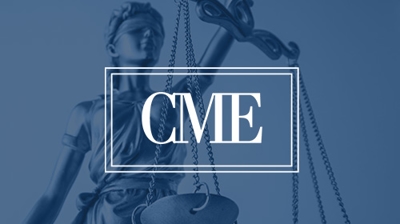
Fairfield County Estate Tax Attorneys
Protecting Your Assets from Taxation Is How Our Danbury, Southbury, and Westport Teams Excel
Blog | Contact Us | Give Us a Call
According to Connecticut law, all Connecticut estates must file an estate tax return. According to federal law, large estates are required to file federal estate tax returns. Many other states have estate tax return requirements. Exemptions from the estate tax at the federal and state levels are frequently changed. When the value of an estate exceeds the applicable exemption, estate tax burdens can be quite large.
At Chipman Mazzucco Emerson, we understand the importance of protecting your assets so they can be transferred to your family and other beneficiaries. With extensive experience in dealing with the tax aspects of estate planning, we can work with you, your family, and your personal financial advisers, to find ways to minimize—or even eliminate—estate tax obligations.
Finding Exemptions and Deductions
When an estate tax return is required, we will carefully review your estate and help you determine whether you qualify for certain exemptions and deductions, including:
- Estate tax exemptions that apply at the federal and state level allowing all or part of an estate to be exempt from taxes. Since 2010 federal exemptions have ranged from $5,000,000 to $11,700,000 in 2021. Proposals to increase federal and state tax levels appear with regularity, so we pay close attention to the latest planning techniques. State exemptions have been lower but are frequently changed.
- The marital deduction, which allows your assets to transfer to your surviving spouse tax-free.
- Other deductions including funeral expenses, charitable donations and costs associated with administering the estate.
Need Help with Estate Tax Planning? Contact us today at (203) 902-4882 to safeguard your assets and minimize tax liabilities.
Understanding the Connecticut Estate Tax Law
Connecticut has its own estate tax laws, which are separate from federal estate tax regulations. The state estate tax applies to estates with a value exceeding a certain threshold, which can lead to significant tax burdens if not properly planned for.
- Exemption Limits: In Connecticut, estates valued over $12.92 million (as of 2023) are subject to estate tax. Estates below this threshold are exempt from the state estate tax. It's important to note that these limits can change, so it’s vital to stay updated on current laws.
- Tax Rates: The estate tax rate in Connecticut ranges from 10% to 12%, depending on the value of the estate. The higher the value of the estate, the higher the tax rate applied.
- Deductions and Exemptions: Certain deductions, such as for charitable donations or funeral expenses, can lower the taxable value of an estate. These deductions are important tools to minimize the amount that will be taxed.
Federal vs. State Estate Tax: Key Differences
Both federal and Connecticut estate tax laws impose taxes on estates above a certain value, but there are key differences to be aware of.
Exemption Thresholds:
- Federal Exemption: As of 2023, the federal estate tax exemption is $12.92 million per individual. This means estates below this value are not subject to federal estate tax.
- Connecticut Exemption: In contrast, Connecticut’s exemption threshold is much lower, at $12.92 million for estates. However, it’s crucial to be aware of any potential future changes in these thresholds.
Tax Rates:
- Federal Rates: Federal estate tax rates can be as high as 40% for estates exceeding the exemption amount.
- Connecticut Rates: Connecticut estate tax rates range from 10% to 12%, depending on the estate’s value.
State-Specific Deductions: Connecticut has additional state-specific deductions that may not be available federally. For instance, the state offers certain deductions for property left to surviving spouses or charitable organizations.
Understanding these differences can help you plan your estate more effectively, ensuring that both state and federal taxes are minimized.
Trusts and Their Role in Minimizing Estate Taxes
Trusts are powerful tools in estate planning and can play a significant role in reducing estate taxes. Here’s how different types of trusts work:
Revocable Living Trusts:
- A revocable living trust allows the person creating the trust (the grantor) to maintain control over the assets during their lifetime. Upon their death, assets are transferred to beneficiaries without going through probate, which can minimize delays and administrative costs.
- While a revocable trust doesn’t directly reduce estate taxes, it can help manage and streamline the transfer of assets.
Irrevocable Trusts:
- Irrevocable trusts remove assets from the grantor’s estate, effectively reducing the taxable value of the estate. Once assets are transferred into an irrevocable trust, the grantor no longer controls them, and they are no longer part of the taxable estate.
- These trusts can be used to shield assets from estate taxes, but they come with less flexibility since the grantor cannot modify or revoke the trust.
Charitable Trusts:
- Charitable trusts allow individuals to donate assets to charity while receiving tax benefits. Donations made to a qualified charity can be deducted from the taxable estate, potentially reducing the estate tax liability.
- Charitable remainder trusts (CRTs) and charitable lead trusts (CLTs) are common types of charitable trusts used in estate planning.
Using the right type of trust can help protect assets, reduce the estate’s tax burden, and ensure that wealth is passed on according to your wishes. Consulting with an experienced estate planning attorney can help you determine the best approach for your situation.
Frequently Asked Questions (FAQ) About Connecticut Estate Tax
- Do I have to pay estate tax in Connecticut if I live out of state?
Yes, if you own property in Connecticut or have a business in the state, your estate may still be subject to Connecticut estate tax, regardless of your primary residence. - Can I avoid paying Connecticut estate tax by gifting assets during my lifetime?
Yes, gifting assets while you're alive can help reduce the taxable value of your estate. Connecticut allows for annual gift exclusions, and larger gifts may reduce your estate’s overall value, potentially lowering tax obligations. However, it’s important to consult with a tax advisor before making significant gifts. - How does the Connecticut estate tax apply to real estate?
Real estate located in Connecticut is included in the value of your estate, and it may be subject to estate tax if the total value exceeds the exemption threshold. This applies even if the property is owned jointly or through a trust. - What happens if my estate exceeds the Connecticut exemption limit?
If your estate exceeds the exemption limit, it will be subject to Connecticut estate tax. The tax rate will vary depending on the estate's value, ranging from 10% to 12%. Planning strategies like setting up trusts or gifting assets can help reduce the taxable value. - Can I leave my estate to my spouse without estate tax implications?
Yes, the marital deduction allows you to transfer assets to your spouse without incurring estate taxes. This deduction applies both in Connecticut and federally, ensuring that no estate tax is owed on transfers to a surviving spouse. - How often should I update my estate plan to reflect changes in estate tax laws?
It's a good idea to review your estate plan every 3 to 5 years or sooner if there are significant changes to tax laws or your financial situation. Estate tax laws can change, and regular updates ensure that your estate plan remains tax-efficient and aligned with your goals. - What happens if I don't file an estate tax return when required?
Failure to file an estate tax return in Connecticut when required can lead to penalties and interest on unpaid taxes. It may also delay the distribution of assets to beneficiaries. It’s important to file the return on time, even if you believe your estate is below the exemption threshold.
Protect Your Assets with Estate Planning
One of the best ways to protect your estate from taxation is to create a strong estate plan. Through trusts and other estate planning tools, you can shield your assets from taxes completely or minimize your estate’s overall tax burden.
Concerned About Connecticut Estate Taxes? Contact us at (203) 902-4882 for expert advice and personalized estate planning solutions.


Meet Our Estate Taxes Attorneys
Walking With Our Clients Every Step of the Way
Delivering High-Quality Legal Services
-
Tailored Legal SolutionsWe strive to find the optimal solution for each unique situation. We are well aware of conventional approaches, but we also think outside the box.
-
Highly Competent Legal Guidance
We will analyze your situation thoughtfully and investigate the relevant law thoroughly to devise a creative solution, customized for your situation.
-
Responsive and Accessible
We pride ourselves on responding promptly to every inquiry as we recognize that your time is valuable and that your needs are immediate.
-
Deep Bench of AttorneysAt our firm, our attorneys have over 100 years of combined experience, each able to bring their unique knowledge and skillset to your case.












.2202281226550.jpg)